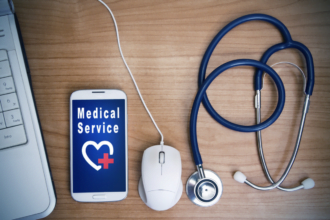Clinical trial marketing is a very important component in successfully bringing a new medical device or pharmaceutical product to market. Business revenue and reputation both ride on the marketer’s success in attracting a significant pool of eligible applicants and maintaining contact with participants throughout the course of the trial.
Clinical trial marketing is a very important component in successfully bringing a new medical device or pharmaceutical product to market. Business revenue and reputation both ride on the marketer’s success in attracting a significant pool of eligible applicants and maintaining contact with participants throughout the course of the trial. Additional audiences, such as doctors and pharmacists, may need to be brought into the communications loop so they will support the recruitment and continued participation of any patients under their care.
With so much riding on the success of these efforts, here are the top three mistakes to avoid in clinical trial marketing:
- Failure to develop a strategic online communication strategy: Consumers and prospective trial participants spend vast amounts of time with their digital devices. A clinical trial that does not have a well thought-out and implemented online communication strategy will reduce its likelihood of success because it is not reaching out to the largest audience available today. While it may seem uncomfortable to think in terms of search engine optimization (SEO) or pay-per-click (PPC) marketing, these are the very strategies which will help to increase awareness of, and participation in, clinical trials.
- Limited communications: Because of the proprietary information that may be involved, it can sometimes feel like information regarding a particular clinical trial is more closely guarded than military secrets. It is disseminated only on a “need to know” basis. This can harm the recruitment efforts and also diminish support from secondary and tertiary communication targets. Determine the key messages that can be publicized regarding what the trial is about, why it is important, and who will benefit. These should be included in all marketing and communication efforts to increase awareness and sustain interest. There should be a continual stream of communications to the participants to sustain their involvement, as well as to appropriate media, medical and pharmaceutical interests.
- Lack of a social media marketing strategy: Consumers and patients are becoming more involved with the companies and medical marketers that provide services to them. Consumers like to know that they can keep in touch, ask questions, and receive responses. This is where a social media marketing element can prove to be invaluable. Blogs throughout the course of the trial can serve to update all interested stakeholders. Enlisting the support of social media influencers in the target space can help increase recruitment and validate the trial’s efficacy. Use of social media to accept and respond to questions will demonstrate openness and sustain engagement with trial participants.
With so much at stake, there are many levels to success in today’s clinical trials. The science and the product or drug under consideration must be of the highest quality, the trial parameters must be beyond reproach, and the clinical trial marketing strategy must be flawlessly planned and executed. Once the trial has proved the efficacy of the particular item under study, a whole new marketing strategy will be necessary to bring it to market.








